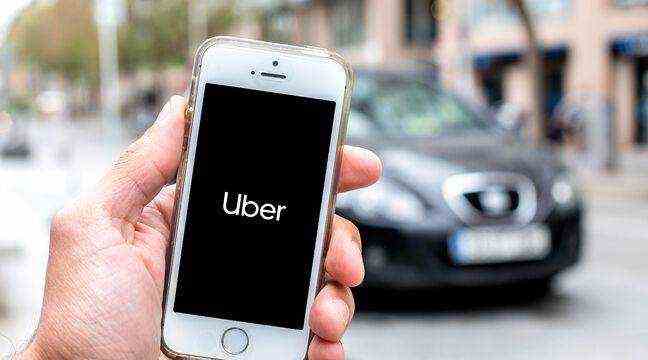Whether in France or abroad, the status of delivery people is a problem. Contractual or employees? The status of drivers of applications like Uber is once again debated in California. A judge there considered Friday a referendum of November 2020, which ratified their independence, as being unconstitutional and “inapplicable”.
A possible way back
Uber and Lyft, the American leaders in the reservation of cars with drivers, had submitted to a vote a law for the independence of drivers in California, while this American state had adopted in 2019 a text which required them to requalify them as employees .
The two companies and other platforms had won the game: voters voted 58.6% in favor of “Proposition 22,” which devoted paid work to the task but gave drivers some fringe benefits.
This proposal is unconstitutional because it “limits the power of the assembly in the future to define the drivers of mobile applications as workers recognized by the law on workers’ compensation,” said Judge Frank Roesh, of the Court of Justice. ‘Alameda, according to the Sacramento Bee newspaper.
The result of the referendum is therefore “inapplicable”, he said.
“We are going to appeal and we think we are going to win,” responded a spokesperson for Uber.
“This decision ignores the will of the majority of Californian voters and makes no sense either in terms of logic or in terms of the law,” he detailed. “The California attorney has firmly defended the constitutionality of Proposition 22.”
A real “triumph” for delivery drivers
For Erica Mighetto, a driver who campaigned for employee status, this decision is “a triumph for the future of work via apps”.
“I’m so glad the courts are seeing Proposition 22 as an attempt to destroy labor rights. I believe that now the drivers have a real chance to fight for sufficient income to live and for a fair working environment, ”she told AFP.
With its competitor Lyft and delivery services, Uber has spent more than $ 200 million to promote “yes” to Proposition 22.
Re-qualifying drivers as employees would mean granting them certain rights and social benefits, such as unemployment benefits or possible collective bargaining.
A year ago, three months before the vote, the two Californian companies threatened to completely cut off their service in the state, which would have put tens of thousands of people out of work.
In February, the California Supreme Court refused to accept the complaint of Uber drivers who wanted to force the state to reject the law approved by referendum.
They hoped to argue that Proposition 22 violated Cailfornie’s Constitution by limiting the ability of its elected officials to facilitate the organization of workers among themselves and by excluding drivers from the fringe benefits to which they should be entitled as employees.
A feeling of “shame”
“It’s disturbing that it took so much effort to legally recognize the obvious,” said Mae Cee on Friday, who drives part-time for Uber and is an activist in the RDU (Rideshare Drivers United), an association of drivers.
“I am delighted with this decision but also worried about what will happen now,” said Nathan, a part-time driver from San Diego.
“I was one of those fooled by the promises of Proposition 22, with the ability to set your own prices, know the details of a ride in advance and Uber’s commission limited to 25%. . All that changed in the three months that followed, ”he told AFP.
But the drivers are divided between those who want to be employees and those who prefer to keep the current flexibility.
Jim Pyatt, a driver from northern California, says the judge’s decision is a “shame.”
“They want to take away the ability of drivers to work independently and eliminate the new historic benefits offered by Proposition 22, including guaranteed income, health insurance and more,” he argued, quoted in a commentary. communicated by the organization which campaigned for “yes”.
Uber embodies the widely adopted, but also widely criticized, per-task economy in many major cities around the world. However, the group has never succeeded in proving the viability of its model, since it has never yet made a profit.

